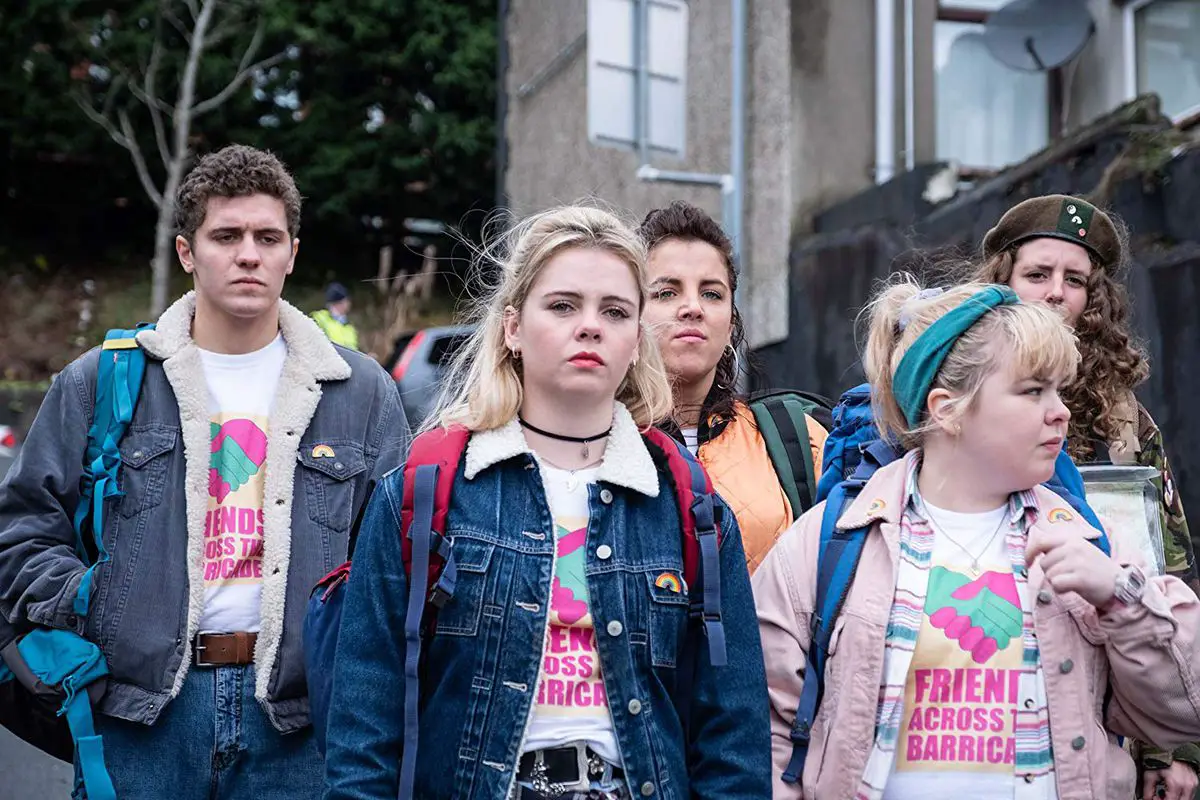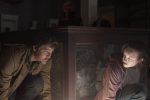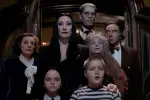From today’s “Euphoria” and “Riverdale,” to yesterday’s “Degrassi” and “Gossip Girl,” the surreal escapades of teenagers played by adults never fail to captivate television audiences. Although “Derry Girls” does not have the budget nor publicity of other teen dramas, it certainly deserves its own place of honor among the funniest and most binge-worthy TV shows today.
“My name is Erin Quinn,” the pilot’s narrator begins. “I’m 16 years old, and I come from a place called Derry, or Londonderry, depending on your persuasion — a troubled little corner in the northwest of Ireland.”
While the soothing voice of a young Irish woman introduces herself and her town, audiences are visually presented with the reality of life in Derry: military trucks patrol the borders, “Welcome to Londonderry” signs are spray painted over to read “Welcome to Free Derry,” soldiers march across one Peace Wall while a bridal party processes over another and high school athletes run past a mural of gas-masked figure.
The Troubles of Ireland was a period of brutal ethno-religious unrest from the 1960s until 1998 and led to the deaths of over 3,500 people. Peace Walls, which still exist in Derry, scarred the landscape of Northern Ireland to separate Protestant-British loyalists from Irish-Catholics. Nearly 2,000 of the fatalities were civilians, leading many to call the conflict a low-level war.
Such intense violence makes having a normal life seem impossible … but not for the characters in “Derry Girls.” The British sitcom follows the misadventures of Erin (Saoirse-Monica Jackson), Orla (Louisa Harland), Clare (Nicola Coughlan), Michelle (Jamie-Lee O’Donnell) and her cousin, the honorary Derry girl, James (Dylan Llewellyn), as they run amok in late 1990s Derry.
Writer Lisa McGee manages to create a side-splitting comedy set against the backdrop of one of the most violent periods in Irish history, beginning with the first narration.
The Irish woman, whose voiceover introduces herself as Erin Quinn, is, in fact, not Erin Quinn. This is the audience’s first taste of the quirky Orla McCool, Erin’s cousin, whose personality is a delightfully odd mix of Luna Lovegood (“Harry Potter”) and Phoebe Buffay (“Friends”). She decides that Erin’s diary is melodramatic enough to make a decent book report.
The hectic Quinn-McCool household is truly an Irish version of “Full House,” consisting of Erin, her mother and father, her grandfather, her little sister, Orla and Orla’s mother. Not to mention the gaggle of friends that are perpetual houseguests. No wonder Erin’s mother, Ma Mary, wants nothing more than the first day of school to whisk the teens away.
When rebels bomb the main bridge of the neighborhood, Ma Mary worries the girls won’t make it to school, meaning they will be at the house, testing Ma Mary’s dwindling patience — a feeling to which most parents can relate.
“Oh, dear God no,” she says. “Does this mean they can’t get to school? I’ve had a whole summer of it. [Erin’s] melting my head.”
Orla’s mother, however, has more pressing concerns regarding a tanning appointment.
“Well I don’t know about the rest of you, but I’m not enjoying this bomb. I have an appointment in Tropicana at 12:00 … This is what [the British loyalists] want. They want ordinary people to suffer.”
McGee neatly constructs the wit of “Derry Girls” in a way that leaves audiences delightfully entertained without undermining the severity of the Troubles. The violence impacts everyone’s daily lives, but Erin’s motley crew are otherwise typical teenagers — they obsess about prom, standardized tests, detention and concerts.
One scene oscillates between the girls performing a step-dance routine at the school talent show and their horrified parents watching a news broadcast about a fatal terrorist attack. The girls put aside their fears of social judgement, get onstage and have a grand time of it. Meanwhile, their parents wonder if the fighting will ever end and if their children will get home safely.
Life in Derry might be plagued with violence, but it will not be stopped. As the saying goes, life must go on.
James’ character perfectly embodies this duality of Derry from an outsider’s perspective. Born to a Derry woman and raised in London, James is considered to be properly British — and, therefore, a source of tension in the Irish-Catholic town. Now living with Michelle and her mother, the “wee British fella” is granted permission to attend the all girls school, Our Lady Immaculate, out of fear that he will be regularly harassed and beaten at the boys school.
When armed soldiers step onto the school bus in search of explosives, viewers might inhale sharply and hold their breath. These are British soldiers marching next to Irish schoolchildren. Protestants suspicious of Catholics. It is the Troubles in a microcosm — and audiences fear the potential fallout.
And they are not the only ones. Upon seeing the roadblock, James shifts in his seat and grows visibly panicked. The foreigner has only heard of the Troubles, but now it surrounds him.
For folks like Michelle, the Troubles is part of growing up in Derry. So, naturally, the group’s wild child reacts by jovially pondering if the soldier would “have a look” if she told him there was an “incendiary device down [her] knickers.”
From breaking the headmistress’ Jesus statue, to lying about witnessing a miracle, to sneaking out to a concert despite a polar bear on the loose, to (unsuccessfully) hiding a suitcase of vodka from the National Guard, the antics to which little ol’ Derry is subjected are too numerous to mention. But with only 12 episodes, each running 25 minutes, “Derry Girls” can easily be enjoyed in one sitting by even the most novice of binge-watchers.
One character who never fails to amuse is Headmistress Sister Michael. The devil himself probably fears this thunderstorm of a woman, so it’s not shocking that the little hellions of Our Lady Immaculate seldom act against her orders.
Whenever Sister Michael steps into the frame, she steals the scene. Her every word drips with sarcasm, every response is wittier than the last and every teachable moment is embraced. Although she runs the school with a strict hand, the nun has a spark to her — a compassion for the teens coming of age in a time of turmoil. She subtly encourages them to push back and rebel so they can figure out who they are and what they will fight for.
Sister Michael represents the point McGee is trying to make with the creation of “Derry Girls.” People will fight about religion, power and national loyalties, but they will also fight for a normal life — a life with unruly teens and frustrated parents, with close-knit friends and annoying cliques and with heartache and disappointment.
The Derry girls and the “wee British fella” are fighting for this normalcy from the very first episode. And with all their shenanigans, it appears they are winning.
















